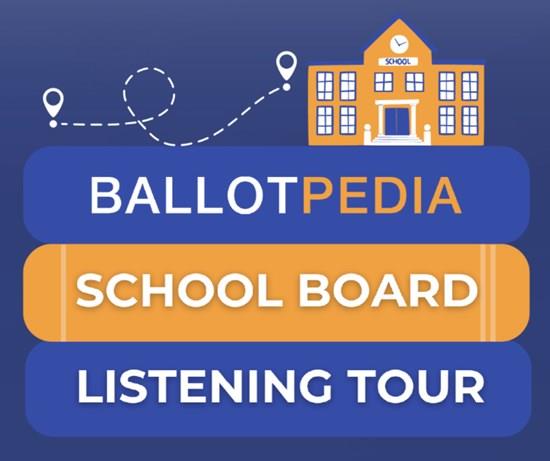
Ballotpedia Spoke To School Board Members Nationwide About Their Roles: Here's What They Told Us
The initiative aimed to develop a deeper understanding of how school board members across the United States view their roles, responsibilities, and challenges. It is intended to serve as a resource for voters, researchers, policymakers, and others interested in the role of school boards in public education. Ballotpedia launched the project as part of its overall multi-year goal of covering all elections in the United States, including all local elections. Nationwide, school board members represent 13,500 public school districts and over 18% of the nation's 520,000 elected officials.
Conducted between 2024 and 2025, Ballotpedia's "School Board Listening Tour" represents the largest qualitative study of its kind. It involved 100 hour-long interviews with current and former board members across 33 states, representing the nation's urban, suburban, and rural districts.
"School boards shape everything from curriculum choices to budget priorities in communities across America while taking on the responsibility of solving problems, addressing issues, and balancing the priorities of their friends, neighbors, and communities as best they can," said Leslie Graves, Ballotpedia's Founder and CEO. "We sought to understand their lived experiences: the subjective perspectives, emotions, and insights of those representing the most direct connection between voters and education outcomes."
Key learnings
- School boards across the country can be broadly categorized into three distinct types. Each type reflects differences in governance and board member dynamics and the degree to which boards prioritize academic outcomes and community engagement.
- Collaborative leadership boards function with high trust, shared vision, and well-defined roles, emphasizing strategy over micromanagement. (28%) Coalition-driven conflict boards experience division along political or ideological lines. (38%) Hands-off oversight boards are deferential toward superintendents, focusing primarily on broad policy decisions. (34%)
Conflict style
- Conflict is inevitable in any governing body, and school boards are no exception.
- Roughly 62% of board members believe conflict usually leads to productive outcomes. Board members said skilled leadership, clear governance, and defined board norms and bylaws help resolve conflict and are essential for positive outcomes. What they said : "We argue, but we always vote and move on. That's the job."
Role in academic outcomes
- 42% of board members see their primary role as staying informed about academic outcomes, while 58% of the board members interviewed for this project did not list this as a primary role. Across all district types, board members consistently described their role in academic outcomes as information seekers, accountability partners, and community liaisons-not instructional experts.
Bridge-builders
- The most common themes included asking informed questions, serving as communication bridges between districts and communities, and supporting professional staff without micromanaging. While many board members report successful collaboration between the board and superintendent, others face challenges. Board members ranked their board-superintendent relationship 3.07 on a five-point scale, underscoring that governance training, clearly defined roles, and trust-building mechanisms are crucial to sustaining a functional partnership. What they said : "Be a conduit between the community and the district. Help translate what's happening in schools into something parents can engage with," explained one member.
Explore the report
The 43-page report details board member perspectives on conflict resolution, academic oversight, community engagement, and governance effectiveness. It includes statistical analysis, thematic findings, and direct quotes from interviews. Download the full report here .
Ballotpedia School Board Listening Tour
To view an enhanced version of this graphic, please visit:
About Ballotpedia
Ballotpedia, the encyclopedia of American politics, is the nation's most trusted source of unbiased information on politics, elections, and policy. Founded in 2007, Ballotpedia has grown from a small group of dedicated volunteers working on a handful of ballot measures to an essential resource for voters, media, and researchers. Ballotpedia is a nonprofit organization dedicated to serving the public interest in creating an educated, engaged electorate and building a strong, healthy democracy. For free access to 600,000+ encyclopedic, professionally authored, and curated articles, visit Ballotpedia .
x x x x x

Legal Disclaimer:
MENAFN provides the
information “as is” without warranty of any kind. We do not accept
any responsibility or liability for the accuracy, content, images,
videos, licenses, completeness, legality, or reliability of the information
contained in this article. If you have any complaints or copyright
issues related to this article, kindly contact the provider above.















Comments
No comment